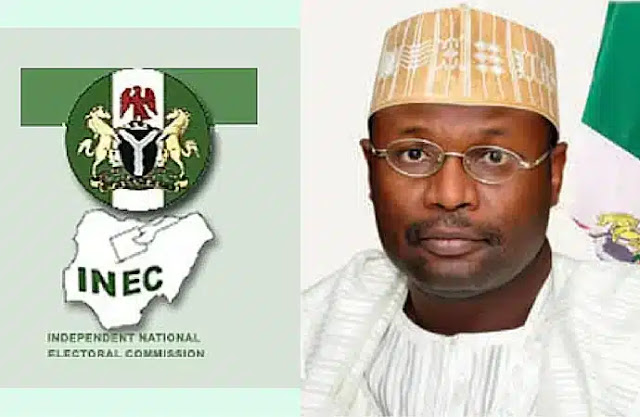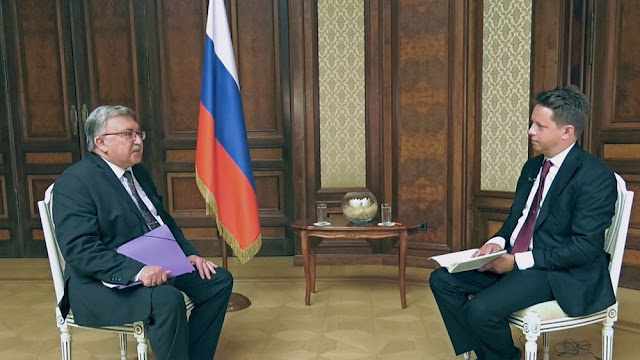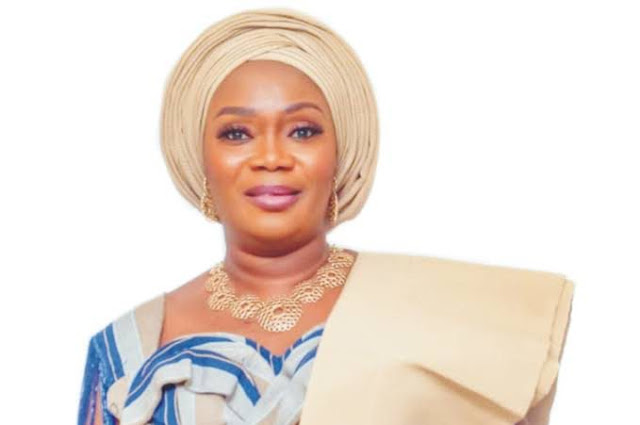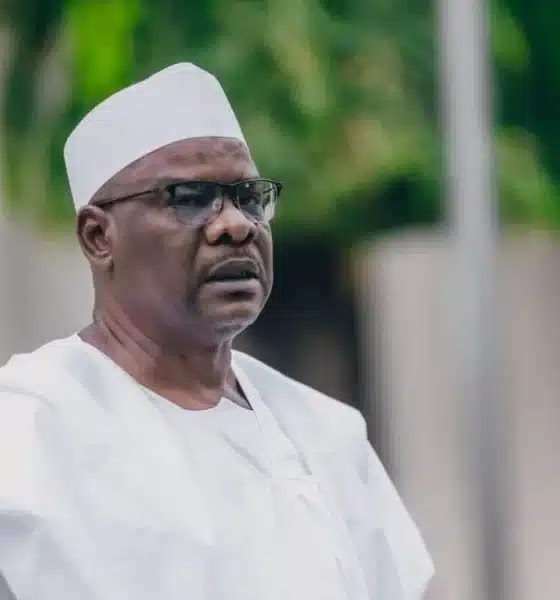In the intricate world of Nigerian politics, where power transitions often unfold like a high-stakes chess game, the impending end of Professor Mahmood Yakubu’s tenure as Chairman of the Independent National Electoral Commission (INEC) has sparked a flurry of behind-the-scenes maneuvers and speculations. As of September 7, 2025, with Yakubu’s second and final term set to conclude in November 2025, the stage is being set for what many observers describe as a fierce succession battle. This development, underscores the critical role that INEC plays in Nigeria’s democratic framework and the intense political interests vying to influence its leadership ahead of the pivotal 2027 general elections.
To fully grasp the gravity of this situation, it is essential to delve into the historical and institutional context of INEC. Established under the 1999 Constitution of the Federal Republic of Nigeria (as amended), the Independent National Electoral Commission is the body constitutionally empowered to organize, conduct, and supervise all elections in the country. From presidential and gubernatorial polls to local government elections, INEC’s mandate is vast, encompassing voter registration, ballot production, result collation, and the adjudication of electoral disputes. The commission’s independence is a cornerstone of Nigeria’s democracy, designed to insulate it from executive interference and ensure free and fair elections. However, in practice, this independence has often been tested by political pressures, funding challenges, and allegations of bias.
Professor Mahmood Yakubu, often referred to simply as “Yakubu” in political circles, assumed the role of INEC Chairman on October 21, 2015, following a rigorous nomination process by then-President Muhammadu Buhari and confirmation by the Senate. A distinguished academic with a background in political science and conflict management, Yakubu brought to the position a reputation for scholarly rigor and administrative competence. Prior to his appointment, he had served as the Executive Chairman of the National Boundary Commission and as a lecturer at the University of Jos, where he earned his PhD. His tenure has been marked by significant milestones, including the introduction of technological innovations such as the Bimodal Voter Accreditation System (BVAS) and the INEC Voter Enrolment Device (IVED), aimed at curbing electoral fraud through biometric verification.
Under Yakubu’s leadership, Nigeria has navigated several landmark elections, most notably the 2019 and 2023 general elections. The 2019 polls saw the re-election of President Buhari, while the 2023 elections ushered in the administration of President Bola Tinubu, representing the All Progressives Congress (APC). These elections were not without controversy; critics pointed to logistical failures, delays in result transmission, and incidents of violence, particularly in regions like the Southeast and North-Central. Despite these challenges, Yakubu’s INEC achieved a degree of transparency by uploading polling unit results to the IReV (INEC Result Viewing) portal, a move that allowed real-time public scrutiny. Supporters credit Yakubu with stabilizing the commission during turbulent times, including the COVID-19 pandemic, which forced adaptations in voting procedures. However, detractors, including opposition parties like the Peoples Democratic Party (PDP) and the Labour Party (LP), have accused the commission of partisanship, alleging undue favoritism toward the ruling APC. For instance, during the 2023 elections, the LP’s presidential candidate, Peter Obi, challenged the results in court, claiming irregularities that Yakubu’s INEC allegedly overlooked.
Yakubu’s tenure, spanning nearly a decade, has thus been a double-edged sword—praised for incremental reforms yet criticized for perceived lapses in impartiality. As his second five-year term draws to a close in November 2025, the constitution mandates that he step down, paving the way for a new appointee. Section 154(1) of the 1999 Constitution stipulates that the INEC Chairman is appointed by the President and confirmed by the Senate for a single non-renewable term of five years, but in Yakubu’s case, he has served two such terms, making his exit inevitable. This constitutional provision is intended to prevent entrenchment and promote fresh perspectives, but it also opens the door to political horse-trading.
The current succession dynamics, as highlighted in the in this news report, reveal that President Tinubu has yet to publicly or privately indicate his preferred successor. Sources close to the presidency, speaking anonymously to Vanguard (a sister publication often collaborating with Naija News on investigative pieces), suggest that deliberations are underway, but no final decision has been reached. This vacuum has fueled intrigues, with various political factions lobbying vigorously to position their preferred candidates. The stakes could not be higher: the next INEC Chairman will oversee the 2027 elections, which are expected to be a battleground for Tinubu’s APC against a resurgent opposition coalition, potentially including figures like Atiku Abubakar of the PDP and Peter Obi of the LP. A “suitable replacement,” as one source put it, is code for someone who can be relied upon to navigate these elections in a manner that aligns with the ruling party’s interests without overtly compromising the commission’s credibility.
Among the names floating in these corridors of power are individuals with prior experience within INEC’s structure. Several former National Commissioners and Resident Electoral Commissioners (RECs) are being touted, including those who have served in key states like Lagos, Kano, and Rivers—regions notorious for electoral volatility. For example, one speculated candidate is a former REC from the Southwest, known for his administrative efficiency but dogged by allegations of bias during the 2023 polls. Another is a National Commissioner with a background in law, who has been vocal in defending INEC’s reforms but has faced scrutiny over her handling of voter registration drives. These individuals’ track records are under intense scrutiny; while some boast impeccable credentials in electoral management, others have been implicated in reports of irregularities, such as the infamous “vote-buying” scandals in off-cycle elections. Civil society organizations like Yiaga Africa and the Policy and Legal Advocacy Centre (PLAC) have already voiced concerns, urging the presidency to prioritize merit over political allegiance.
This unfolding drama evokes painful memories of Nigeria’s electoral history, where flawed processes have undermined public trust in democracy. The 2003 general elections, held under the administration of President Olusegun Obasanjo, were marred by widespread rigging, voter intimidation, and judicial manipulations. Opposition parties, including the Alliance for Democracy (AD), boycotted subsequent polls in protest, and international observers from the European Union described the exercise as falling short of democratic standards. Fast-forward to 2007, and the situation deteriorated further. The elections that brought late President Umaru Musa Yar’Adua to power were so compromised that Yar’Adua himself, in his inaugural address on May 29, 2007, candidly admitted, “We all know that while the conduct of the elections was far from perfect, it was a major improvement on previous elections.” This rare confession highlighted systemic issues like ballot stuffing, falsified results, and the infamous “do-or-die” rhetoric attributed to Obasanjo. The Supreme Court eventually upheld Yar’Adua’s victory, but the damage to INEC’s reputation lingered, leading to reforms under subsequent leaders.
This news’ analysis warns that leaving the succession process in the hands of unchecked political lobbyists could precipitate a repeat of such manipulations. In an era where social media amplifies public discontent—witness the #EndSARS protests of 2020 and the #Obidient movement of 2023—any whiff of impropriety in INEC’s leadership could ignite nationwide unrest. The article posits that the 2027 elections, with their implications for zoning formulas, ethnic balances, and economic policies, demand an INEC Chairman of unimpeachable integrity. Tinubu, himself a product of electoral battles (having won the 1992 Social Democratic Party primaries before annulment and triumphing in 2023), is under pressure from APC stalwarts to appoint someone who can “deliver” without alienating key demographics.
Parallels are inevitably drawn to the 2015 succession saga, a chapter that still resonates in Nigerian political lore. When Professor Attahiru Jega, a renowned reformist and former Vice-Chancellor of Bayero University Kano, exited INEC on June 30, 2015, after steering the country through the credible 2011 and 2015 elections, the transition was anything but smooth. Jega, appointed by then-President Goodluck Jonathan in 2010 amid post-2007 reforms, had earned accolades for introducing electronic card readers and accrediting domestic observers, measures that significantly reduced fraud. In line with INEC’s internal hierarchy and statutory provisions, Jega handed over to the most senior National Commissioner, Ambassador (Dr.) Ahmed Wali, as acting chairman. Wali, a diplomat with experience in electoral administration, was seen as a safe, interim choice.
However, within a mere 24 hours, President Muhammadu Buhari, fresh from his electoral victory, upended this arrangement. On July 1, 2015, the Head of the Civil Service of the Federation, Danladi Kifasi, issued a letter appointing Mrs. Amina Bala Zakari as acting INEC Chairman. Zakari, a National Commissioner since 2007, was notably junior to Wali in the commission’s pecking order. More damningly, she was perceived as a relative of Buhari—rumors swirled of familial ties through marriage, though never fully substantiated—leading to immediate cries of nepotism. Civil society groups, including the Transition Monitoring Group (TMG), condemned the move as a betrayal of meritocracy, arguing it politicized an institution meant to be apolitical. The controversy simmered for months, with Zakari’s tenure as acting chair drawing protests and legal challenges. It was only on October 21, 2015, after intense lobbying from various quarters—including academics, traditional rulers, and international partners like the United States—that Buhari nominated Yakubu, who was confirmed by the Senate shortly thereafter.
This 2015 episode serves as a cautionary tale for the current juncture. Back then, the appointment process exposed fault lines within the APC, with northern interests clashing against southern ones, and reformists pitted against conservatives. Zakari’s brief stint was criticized for lacking the gravitas needed to prepare for the 2019 elections, though she defended her role by emphasizing continuity. The uproar ultimately pressured Buhari to select Yakubu, whose academic credentials and non-partisan image helped restore some confidence. Today, similar pressures are mounting on Tinubu. As a Yoruba Muslim from the Southwest, Tinubu faces demands for zonal balance—INEC chairs have historically rotated regions, with Jega from the North and Yakubu also from the North (specifically Kaduna State). Speculation abounds that the next appointee might hail from the South-South or Southeast to appease ethnic sentiments, but political realists argue that competence and loyalty will trump geography.
Delving deeper into the institutional mechanics of INEC appointments reveals a process fraught with opportunities for influence. Under Section 154(1) of the Constitution, the President nominates the Chairman and members, subject to Senate confirmation. The National Assembly’s role is crucial; in Yakubu’s case, his 2015 confirmation passed with overwhelming support, but future nominees could face grilling over past controversies. The Electoral Act 2022 further empowers the Senate to ensure qualifications, including at least 15 years of experience in public service and no criminal record. Yet, lobbyists—ranging from party godfathers like Bola Tinubu’s erstwhile ally, former Lagos Governor Babatunde Fashola, to influential emirs and governors—are already at work. Reports suggest that APC governors from the North are pushing for a “trusted hand” to counter opposition gains in states like Kano and Kaduna, where the New Nigeria Peoples Party (NNPP) made inroads in 2023.
The broader implications of this succession battle extend beyond INEC’s internal dynamics to Nigeria’s democratic health. Nigeria, Africa’s most populous nation with over 200 million people and a burgeoning youth population, relies on credible elections to maintain stability. The 2023 elections, despite BVAS, saw turnout drop to 26.7%, the lowest in decades, attributed to voter apathy amid distrust. A contested INEC leadership could exacerbate this, potentially leading to boycotts or violence. International observers, such as the Commonwealth and the African Union, have repeatedly stressed the need for transparent appointments; any hint of favoritism could invite sanctions or reduced aid, as seen post-2007.
Moreover, the role of civil society cannot be overstated. Organizations like the Centre for Democracy and Development (CDD) are mobilizing campaigns for a merit-based selection, echoing their efforts in 2015. Public intellectuals, including Professor Chidi Odinkalu, have taken to platforms like X (formerly Twitter) to decry the “auctioning” of the post. In one viral thread, Odinkalu argued, “INEC’s chair is not a patronage prize; it’s the guardian of our sovereignty.” Similarly, the Nigerian Bar Association (NBA) has called for public hearings on nominees, a practice that could democratize the process.
As for potential successors, while names remain speculative, patterns from past appointments offer clues. Yakubu’s predecessor, Jega, was an outsider with reformist zeal; his successor was an insider with administrative experience. Current whispers point to figures like May Agbamuche-Mbu, a National Commissioner with legal expertise, or Sam Olugbade, a former REC known for logistics prowess. However, their “suitability” is subjective—useful to some for ensuring “peaceful” outcomes, questionable to others for potential bias.
In conclusion, the looming end of Yakubu’s tenure is more than an administrative transition; it’s a litmus test for Tinubu’s commitment to electoral integrity. With 2027 on the horizon, the succession battle could define Nigeria’s democratic trajectory, either reinforcing trust or deepening divisions. As political interests clash, the hope remains that merit, not manipulation, prevails—a lesson hard-learned from the shadows of 2003, 2007, and 2015.
Historical Context: The Evolution of INEC and Electoral Reforms in Nigeria
To appreciate the significance of the current succession battle, one must trace INEC’s evolution from its inception. The commission’s roots lie in the colonial era, with the first electoral body, the Electoral Commission of Nigeria, established in 1958 under British rule. Post-independence, the 1960 and 1964 elections were fraught with ethnic tensions, culminating in the 1966 military coup. The Second Republic (1979-1983) saw the National Electoral Commission (NEC) organize the 1979 polls that brought Shehu Shagari to power, but allegations of rigging led to another coup in 1983.
The return to democracy in 1999 birthed INEC under the current constitution, with Justice Ephraim Akpata as its first Chairman. Akpata’s tenure focused on rebuilding trust after years of military rule, but the 2003 elections exposed vulnerabilities. Under Dr. Abel Guobadia, INEC struggled with manual processes prone to tampering. The 2007 debacle under Professor Maurice Iwu was the nadir; Iwu’s announcement of Yar’Adua’s victory amid chaos prompted the Uwais Electoral Reform Committee, which recommended depoliticizing appointments and enhancing funding autonomy—reforms partially implemented under Jega.
Jega’s era (2010-2015) was transformative. Appointed amid the Jonathan administration’s push for credibility post-2007, Jega introduced the Continuous Voter Registration (CVR) and card readers, reducing multiple voting. His handling of the 2015 elections, where Buhari defeated Jonathan, was praised globally, with a 43% turnout and minimal disruptions. Yet, the post-Jega transition tainted this legacy, as detailed earlier.
Yakubu built on this foundation, implementing the Electoral Act 2010 (amended in 2022) to mandate electronic transmission of results. The 2019 elections saw innovations like the Smart Card Readers, though glitches in Rivers State led to court battles. By 2023, BVAS was deployed nationwide, accrediting over 93 million voters, but challenges persisted: internet failures delayed uploads, and collation centers in Abuja faced sieges by party agents. Yakubu defended these as teething issues, stating in a 2024 press conference, “Technology is not a silver bullet, but it’s a vital tool against fraud.”
Critics, however, argue Yakubu’s tenure perpetuated northern dominance in INEC leadership, with most RECs from the North. This regional skew fuels calls for diversification in the next appointment, potentially favoring a Southern candidate to balance the Northwest’s influence under Tinubu.
Political Intrigues and Stakeholder Perspectives
The succession battle is not occurring in a vacuum; it’s intertwined with Nigeria’s multi-party system and ethnic arithmetic. The APC, holding power since 2015, views INEC as a bulwark against opposition resurgence. Tinubu’s allies, including Senate President Godswill Akpabio, are reportedly screening candidates discreetly. Opposition voices, like PDP’s Deji Adeyanju, warn on social media, “If Tinubu installs a puppet, 2027 will be a sham.” The LP, buoyed by Obi’s 6.1 million votes in 2023, demands an “independent” chair, with Obi himself tweeting in August 2025, “INEC must serve the people, not politicians.”
Civil society plays a pivotal role. The Situation Room, a coalition of 80 NGOs, has drafted a scorecard for nominees, emphasizing anti-corruption records and gender balance—INEC currently has only two female National Commissioners. International actors, via the National Democratic Institute (NDI), advocate for transparent processes, recalling how U.S. pressure influenced Yakubu’s 2015 appointment.
Speculative successors include:
Hajiya Aisha Ahmad: A former National Commissioner, praised for IT expertise but criticized for 2023 delays in the North.
Dr. Nuhu Yunusa: Ex-REC in Adamawa, with a clean record but limited national exposure.
Barrister Olusegun Romi: Legal eagle who defended INEC in tribunals, seen as APC-friendly.
Each brings strengths and baggage, with lobbyists leveraging personal ties to Tinubu, who as Lagos godfather knows the art of patronage.
Economically, a credible INEC is vital; flawed elections deter investors, as seen in the naira’s 2023 depreciation post-polls. Projections for 2027 estimate 100 million voters, requiring N500 billion in funding—delays in succession could disrupt preparations.
Future Projections and Recommendations for a Credible Transition
Looking ahead, the succession could shape Nigeria’s democracy for the next decade. If Tinubu opts for a reformist like Jega 2.0, it might boost turnout and legitimacy; a partisan pick risks boycotts, echoing Kenya’s 2017 re-run. Recommendations include: Senate-led public vetting, civil society input, and constitutional amendments for fixed tenures.
In essence, as Yakubu’s era ends, Nigeria stands at a crossroads. The battle for INEC’s helm is a microcosm of broader struggles for accountable governance. Stakeholders must prioritize integrity to ensure 2027 fortifies, rather than fractures, the nation’s democratic edifice.






